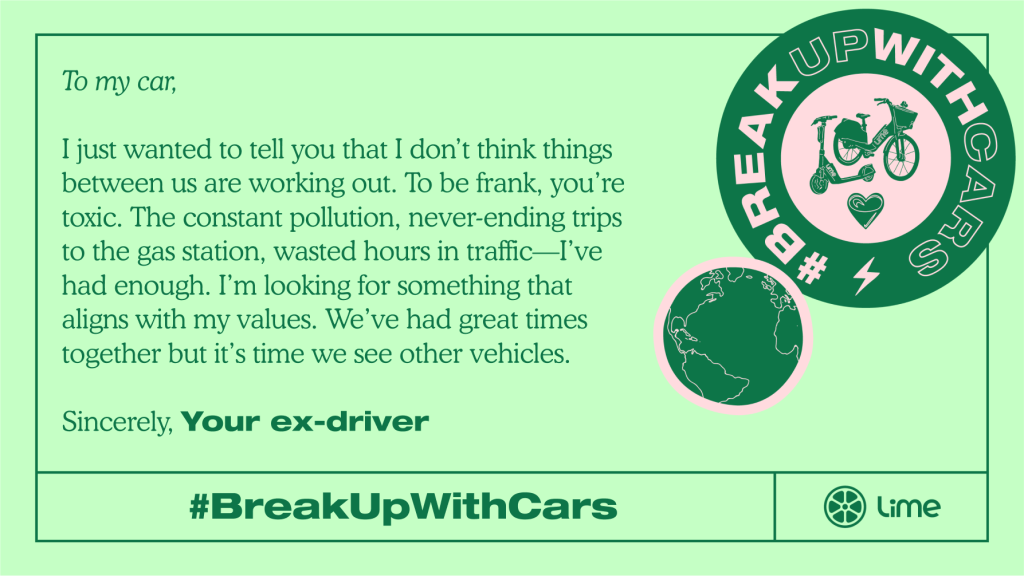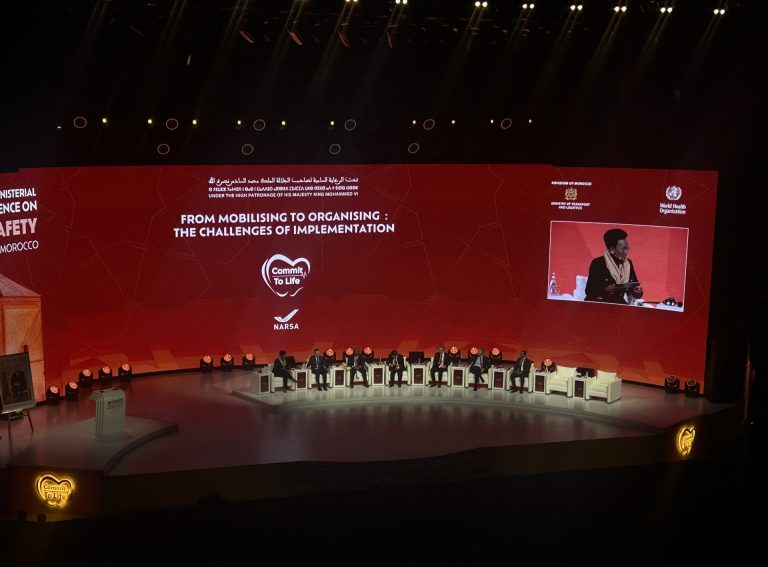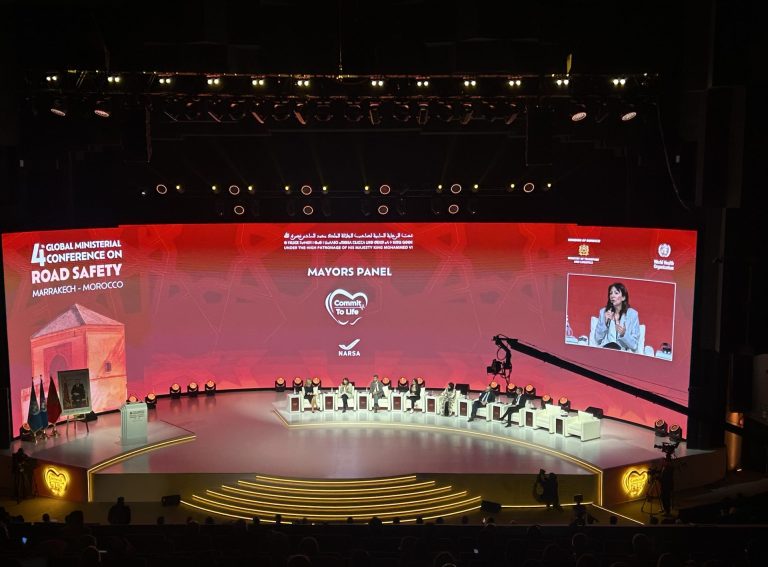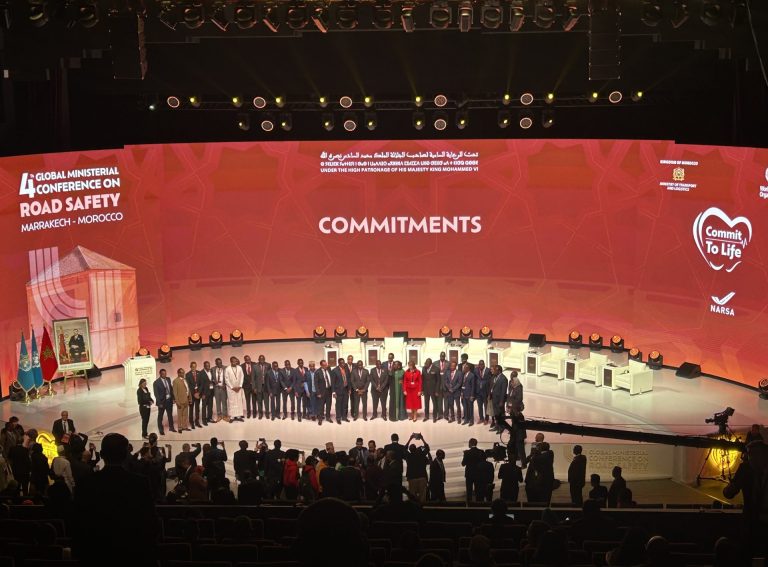Shared electric vehicle company Lime has launched a new campaign to encourage drivers to end their toxic relationships with cars.
The “Break Up With Cars” campaign from Lime is the first it has launched that directly attempts to tackle driving in cities.
It is designed to highlight the negative societal impacts of driving, including time wasted in traffic, the high costs of petrol and car ownership, the damage driving has on the environment and more.
“With transportation a leading source of global carbon emissions and more than 1.3 million people killed in car crashes annually worldwide, it’s past time to end our toxic relationship with cars,” said Wayne Ting, CEO of Lime.

Drivers that pledge to break up with their cars for as little as a day to as long as a month can reap rewards of up to around £2,600 ($3,500) worth of Lime rides. They will also get ‘Break Up With Cars’ branded t-shirts and Bern helmets.
Lime is partnering with content creators Hila the Killa and Queen Brown Vegan along with local partners to amplify the message globally.
The campaign will feature billboard advertising in San Francisco and London, as well as print ads in the San Francisco Chronicle and the London Evening Standard.
In San Francisco, the billboard that will display the campaign is the largest in the Bay Area, and is strategically positioned as a head-on read to traffic exiting the new Bay Bridge on the I-80 corridor.
This stretch of road has also been named in the Top Ten Most Congested Corridors in the San Francisco Bay Area by the Metropolitan Transportation Commission, and so will serve as a helpful reminder that there are better ways to commute than being stuck in traffic.
Wayne Ting added: “We’re excited about this creative campaign’s potential to move people away from car use and onto more sustainable transportation options. It’s a reminder that freeing oneself from the costly and time consuming headaches of car ownership is not only a healthy step for drivers, but good for cities and the planet as well.”
Lime’s electric bikes and scooters have now powered more than 250 million rides in more than 200 cities across five continents.




